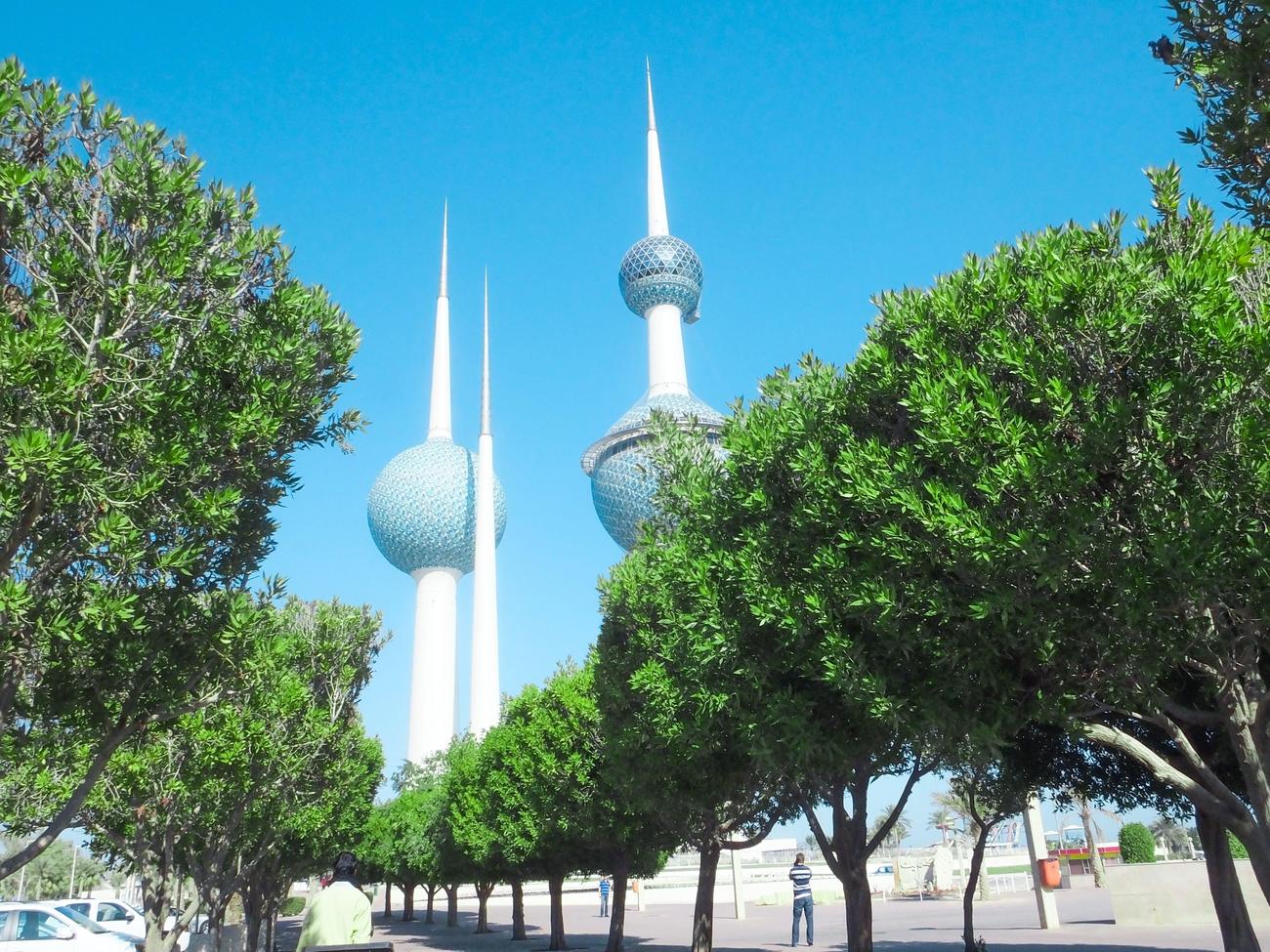Welcome to an enthralling journey through the mystic land of Iraq, where the echoes of ancient civilizations resonate in every corner. Embark on a voyage of discovery as we unravel the intriguing facts that unveil the rich heritage of this historically significant country. Brace yourself to delve into the depths of time, where we uncover the legacy of one of the oldest legal codes known to humanity – The Code of Hammurabi. And that’s not all, for we shall also explore the literary gem that is the epic of Gilgamesh, a timeless tale that captivates hearts and minds. So, fasten your seatbelts as we embark on this captivating adventure through the cultural tapestry of Iraq.

Interesting Facts About Iraq
Mesopotamia: The Cradle of Civilization
Iraq is widely regarded as the Cradle of Civilization as it is the birthplace of several ancient civilizations, including Sumer and Babylon. These civilizations existed thousands of years ago and made significant contributions to human history. The Sumerian civilization, for example, developed one of the earliest writing systems known as cuneiform. With their advanced irrigation systems and architectural achievements like ziggurats, these ancient cultures laid the foundations for future civilizations to thrive.
“Iraq holds the incredible distinction of being the Cradle of Civilization, where ancient societies paved the way for future progress and innovation.”
A Land of Deserts and Rivers
Beyond its scorching desert landscapes, Iraq boasts two vital rivers, the Tigris and Euphrates, which have shaped the country’s history and culture. These rivers have been significant sources of water for irrigation, enabling agriculture to thrive in an otherwise arid region. They have played a fundamental role in sustaining various civilizations and fostering economic development. The lush greenery along their banks provides a stark contrast to the surrounding desert expanse.
“In the midst of its desert terrain, Iraq’s vibrant rivers, the Tigris and Euphrates, form the lifeblood of the nation, supporting agriculture and offering respite amidst the arid landscape.”
Iraqi Innovations
Iraq has a rich history of scientific and cultural innovations. Many inventions we take for granted today originated in this ancient land. For instance, the wheel, an indispensable invention, was first utilized in Iraq thousands of years ago. The concept of time measurement with a 60-minute hour and 60-second minute also stems from ancient Mesopotamia. Furthermore, the world’s earliest known maps were crafted by the Babylonians, providing evidence of their advanced understanding of geography.
“Innovation has long been ingrained in Iraq’s culture, as evidenced by the wheel, our modern time measurement system, and the remarkable early maps that painted a picture of our world.”
Journey to Independence
Iraq gained independence in 1932, breaking free from centuries of foreign rule. It transitioned from being part of the Ottoman Empire to falling under the British Mandate before finally achieving sovereignty. This journey to independence holds significant historical importance for the Iraqi people, representing a triumph over colonization and the struggles faced during the decolonization period.
“Iraq’s road to independence in 1932 marked a momentous occasion, symbolizing the resilience of a nation in its pursuit of self-governance and freedom.”
A Tapestry of Cultures
Iraq is a melting pot of cultures, encompassing a diverse range of ethnic and religious groups. Arabs, Kurds, Turkmen, Assyrians, Mandaeans, and Armenians all contribute to the multicultural fabric of the country. Each group brings its own unique traditions, languages, and customs, enriching Iraq’s vibrant cultural tapestry. This diversity is not only a source of pride but also a testament to the country’s ability to nurture harmonious coexistence among various communities.
“Iraq’s multiculturalism is a testament to the harmonious coexistence of diverse ethnic and religious groups, each contributing its unique colors to the tapestry of our nation.”
A Nation Defined by Its People
With a population of about 27.5 million, Iraq is a country rich in human diversity. Its citizens, known for their warmth and hospitality, play a significant role in shaping Iraq’s identity. The resilience and unwavering spirit of the Iraqi people in the face of numerous challenges throughout history deserve admiration, as they continue to contribute to the progress and development of their nation.
“At the heart of Iraq’s cultural richness lies its people, resilient and hospitable, embodying the soul of our nation.”
The Vibrant Capital: Baghdad
Baghdad stands as the vibrant heart and capital city of Iraq. With a history spanning thousands of years, this city holds immense historical and cultural significance. Once a thriving center of learning and trade, Baghdad has been witness to numerous dynasties, architectural wonders, and intellectual achievements. Though its history has seen ups and downs, Baghdad remains a symbol of resilience and historical continuity.
“Baghdad, the vibrant capital city, stands as a testament to Iraq’s storied past, preserving the richness of our heritage within its ancient walls.”
Language and Faith
The languages spoken in Iraq reflect its diverse cultural mosaic. Arabic, Kurdish, Turkoman, Assyrian, and Armenian are among the languages spoken by various ethnic groups across the country. Each language holds a special place in Iraqi society, contributing to the diverse linguistic environment.
Islam is the majority religion in Iraq. Muslims form a significant portion of the population and play an integral role in shaping the country’s cultural and social dynamics. However, it is important to note that Iraq also has communities practicing different religious beliefs, fostering an environment of religious pluralism.
“In a symphony of languages and faiths, Iraq celebrates the diversity of its linguistic tapestry and the coexistence of various religious beliefs.”
The Quest for Knowledge
Iraq places great importance on education and literacy, with the majority of adults being literate. The country’s commitment to education reflects its enduring desire for progress and intellectual growth. This dedication to learning paves the way for further social and economic development, helping to shape the future of Iraq.
Life expectancy in Iraq is about 69 years, a testament to the progress made in healthcare and life quality. The nation’s focus on improving healthcare services and promoting healthy living is crucial in ensuring the well-being of its population.
“Iraq’s pursuit of knowledge and commitment to personal growth breathe life into our society, opening doors to progress and brightening our collective future.”
In conclusion, Iraq is a captivating country with a multitude of fascinating facts that unveil its rich heritage. From being the Cradle of Civilization to embodying cultural diversity and resilience, Iraq’s history and people offer a tapestry of stories waiting to be explored. Its contributions to inventions, independence, and education have shaped both the region and the world. Iraq continues to grow, embracing its vibrant past while forging a path towards a brighter future.
Interesting Facts About Iraq:
Did you know that Iraq is a country rich in history and culture? There are so many fascinating facts about this ancient land that will surely surprise you. For example, did you know that Iraq is home to some of the oldest civilizations in the world, including the Mesopotamian civilization? It’s true! This region has played a significant role in shaping human history.
One interesting fact about Iraq is its diverse landscape. From the vast deserts to the fertile plains, and even the marshlands, this country offers a breathtaking variety of natural beauty. You can explore ancient ruins, such as the famous city of Babylon, or immerse yourself in the vibrant culture of Baghdad, the capital city.
If you’re a student seeking to learn more about Iraq, here are some essential facts for you. Iraq has a rich and fascinating history, with influences from various ancient civilizations. Discover more about this captivating country by checking out these Iraq facts for students.
If you’re curious about Iraq and want to know more about the country’s unique characteristics, you’re in for a treat! Click here to explore five intriguing facts about Iraq. These facts will take you on a journey through its history, culture, and so much more.
Are you looking to uncover some fun facts about Iraq? Look no further! Iraq is a treasure trove of interesting and lesser-known information that will leave you amazed. Dive into the world of fun facts about Iraq by clicking here. You won’t be disappointed!
The history of Iraq is one filled with fascinating stories and events that have shaped the country as we know it today. If you’re intrigued by the historical aspects of Iraq, click here to discover some intriguing facts about Iraq’s history. From ancient empires to Islamic conquests, you’ll find it all in this captivating overview.
Iraq is not only known for its history but also for its unique government system. If you’re curious about how Iraq’s government functions or want to learn more about its political structure, click here. You’ll find some interesting facts about Iraq’s government that will broaden your understanding of this intriguing nation.
So, what are you waiting for? Journey into the captivating world of Iraq by clicking on the links below:
- Iraq Facts For Students
- What Are 5 Facts About Iraq
- Fun Facts About Iraq
- Interesting Facts About Iraq History
- Interesting Facts About Iraq Government
The Code of Hammurabi: One of the Oldest Legal Codes
The Code of Hammurabi stands as one of the oldest legal codes ever created, providing us with a fascinating glimpse into the ancient world. Picture this: over 3,700 years ago, in the ancient Near East, during the reign of Hammurabi, the sixth king of the First Dynasty of Babylon, these laws were etched into a massive slab of diorite. Carved in the unique Old Babylonian dialect of Akkadian, this four-ton slab served as the foundation for legal proceedings in ancient Babylon.
Imagine the enormity of creating such a detailed legal code during a time when written laws were still in their infancy. Hammurabi, whose family hailed from the Amorites, a semi-nomadic tribe in western Syria, crafted a code that reflected a fusion of cultures. This unique blend set the stage for the development of legal systems in the ancient world.
The Code of Hammurabi is a true testament to Hammurabi’s dedication to justice and order. With 282 laws addressing various aspects of life and society, this code leaves no stone unturned. From matters of slavery and debt to commercial regulations and family law, it offers us a rich tapestry of ancient Babylonian society.
One of the striking elements of Hammurabi’s code is the way it addressed different social classes. By varying the severity of criminal penalties based on the identities of both the lawbreaker and the victim, it captured an early notion of fairness in legal proceedings. This groundbreaking concept offered a glimpse into a society deeply concerned with maintaining a semblance of balance and harmony.
Don’t you find it intriguing how a legal code from over 3,700 years ago can still resonate with us today? Hammurabi’s code established a minimum wage for workers, showcasing a surprising commitment to labor rights even in ancient times. It contains examples of the presumption of innocence, showcasing Hammurabi’s desire for just and impartial legal proceedings. It is a remarkable milestone in the history of written laws and the rule of law itself.
Think about it: Hammurabi’s code influenced not only the legal systems of his time but also those of later civilizations. Ancient Greece and Rome, both remarkable in their own right, were shaped by the principles laid out in this ancient legal code. It is an enduring reminder of the power of legislation and its ability to shape society.
Despite its age, the Code of Hammurabi remains a vital resource for scholars and historians today. Its preservation and rediscovery in the ruins of the Elamite city of Susa in 1901 served as an awakening for our collective understanding of ancient Mesopotamia. This monumental legal document continues to provide valuable insights into the social, economic, and legal practices of the time. It is a testament to the enduring influence of the Babylonian empire and its impact on the development of human civilization.
The Code of Hammurabi: One of the Oldest Legal Codes
“The Code of Hammurabi, etched into history over 3,700 years ago, captures the essence of justice and order in ancient Babylon. Through this impressive collection of laws, we can glean valuable insights into a society deeply concerned with maintaining harmony and fairness. From labor rights to the presumption of innocence, Hammurabi’s code has left an indelible mark on the development of legal systems throughout history.”
Literary Legacy: The Epic of Gilgamesh
As we explore the rich heritage of Iraq, one cannot overlook the literary legacy that has endured through centuries. Among the impressive works originating from the region, the Epic of Gilgamesh stands tall as an ancient Mesopotamian epic poem that captivates both scholars and readers alike.
Dating back to the Third Dynasty of Ur, around 2100 BC, the Epic of Gilgamesh takes us on a journey through the life of its title character, Gilgamesh, the renowned king of Uruk. Portrayed as a great warrior and builder, Gilgamesh leaves an indelible mark on history as he creates a magnificent city using glazed bricks. But this epic poem delves deeper, shedding light on both the admirable and flawed aspects of this iconic figure.
Gilgamesh is depicted as a multifaceted character, embodying immense power and ambition, but also lust and tyranny. Despite his accomplishments, he seizes and violates brides on their wedding day, revealing the complexities of his persona. Through the exploration of these contrasting traits, the epic delves into profound themes of mortality and humanity, inviting readers to reflect on the essence of life itself.
Within the verses of the Epic of Gilgamesh, we encounter a famous quote that resonates across time: “Forget death and seek life!” These words serve as a reminder to embrace the joys and wonders of existence, urging us to seize every opportunity for growth and fulfillment. Such profound insights and timeless wisdom contribute to the enduring appeal of this ancient masterpiece.
Beyond its literary significance, the Epic of Gilgamesh holds a place of influence in the broader world of literature. Popular in antiquity, the epic left an indelible mark on subsequent works, even influencing the Homeric epics in ancient Greece. Interestingly, parallels can also be drawn between the Epic of Gilgamesh and the Hebrew Bible, with some scholars suggesting that the Old Testament writers drew inspiration from this epic tale.
While the first modern translation of the epic was published in the 1870s, diverse versions and translations have emerged over time, further enhancing our understanding and appreciation of this literary gem. It is important to note that the story of Gilgamesh is written in the Akkadian language, adding to its historical and cultural significance.
The discovery of the Epic of Gilgamesh in 1853 marked a pivotal moment in our understanding of ancient Mesopotamian culture. Since then, this remarkable work has continued to captivate scholars and readers, enabling us to glimpse into the distant past and unravel the tapestry of human civilization.
In conclusion, the Epic of Gilgamesh stands as a testament to Iraq’s literary legacy, showcasing the country’s deep roots in storytelling and the preservation of cultural heritage. Its exploration of the multifaceted nature of its protagonist, Gilgamesh, and the profound themes it dwells upon continue to resonate with readers today. Just as Gilgamesh sought to create a magnificent city, this epic poem has created an enduring legacy that transcends time, inviting us to reflect on the triumphs and trials of our own mortal existence.
FAQ
Question 1
What is the Code of Hammurabi?
Answer 1
The Code of Hammurabi is one of the oldest legal codes in history, composed during 1755 to 1750 BC in the ancient Near East. It is a set of laws that provide insights into ancient Babylonian society and address various aspects of life and society.
Question 2
What is the significance of the Code of Hammurabi?
Answer 2
The Code of Hammurabi is considered an important milestone in the history of written laws and the rule of law. It influenced legal systems in later civilizations such as ancient Greece and Rome. The code played a significant role in shaping the development of legal systems in the ancient world.
Question 3
How was the Code of Hammurabi rediscovered?
Answer 3
The Code of Hammurabi was rediscovered in the ruins of the Elamite city of Susa in 1901. It had been hidden away for centuries and was found inscribed on a single, four-ton slab of diorite.
Question 4
What is the Epic of Gilgamesh?
Answer 4
The Epic of Gilgamesh is an ancient Mesopotamian epic poem that dates back to the Third Dynasty of Ur, around 2100 BC. It tells the story of Gilgamesh, the king of Uruk, who is portrayed as a great warrior and builder. The epic explores themes of mortality and humanity.
Question 5
What is the influence of the Epic of Gilgamesh?
Answer 5
The Epic of Gilgamesh has had a significant influence on later literary works. It was popular in antiquity and is believed to have influenced the Homeric epics. Some scholars also believe that the writers of the Old Testament drew on the story of Gilgamesh, highlighting the impact of this ancient literary work.
















